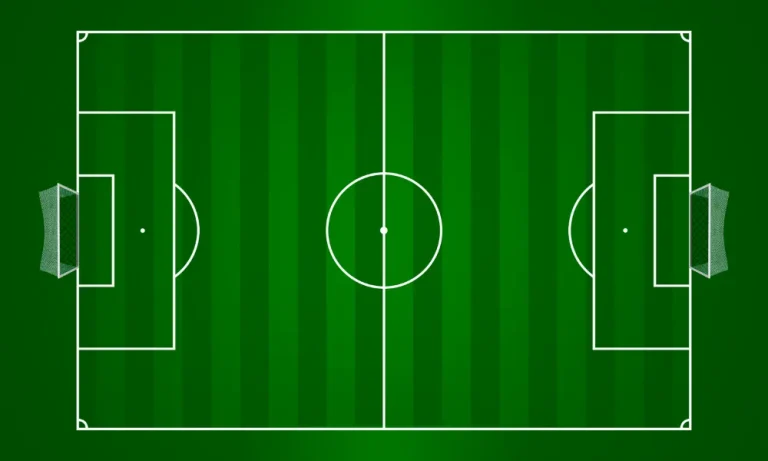Assessing Skill Levels: Football, Soccer, and Basketball
Are you ready to take your game to the next level? Whether you’re a player, coach, or simply a sports enthusiast, assessing skill levels in football, soccer, and basketball is crucial for improvement and success. In this blog post, we’ll explore the essential techniques and metrics used to evaluate skills in these sports. Let’s dive in!
Why Assessing Skill Levels is Important
Assessing skill levels in football, soccer, and basketball is of utmost importance for player development and team performance. By evaluating the skills of individual players, coaches and trainers can identify strengths and weaknesses, allowing for targeted training and improvement. This not only benefits the individual player but also contributes to the overall success of the team.
Skill assessment helps in identifying strengths, allowing players to further enhance their areas of expertise. For example, in football, a player with exceptional dribbling skills can be encouraged to develop their dribbling techniques even further, making them a valuable asset on the field.
On the other hand, skill assessment also sheds light on weaknesses, enabling players to work on those areas and become more well-rounded athletes.
Moreover, skill assessment plays a pivotal role in scouting and talent identification. Coaches and recruiters rely on accurate assessments to identify promising talent and build strong teams. By evaluating the skills of potential recruits, teams can make informed decisions about player acquisitions, ensuring they have the right mix of abilities to achieve success.
Key Metrics for Skill Assessment
When it comes to assessing skill levels in football, soccer, and basketball, several key metrics play a crucial role. These metrics provide valuable insights into a player’s abilities and help coaches and trainers make informed decisions. Let’s explore some of the essential metrics used in skill assessment.
Speed is an important metric across all three sports. It measures how quickly a player can cover ground, enabling them to outrun opponents or reach a scoring position. Agility is another crucial metric that assesses a player’s ability to change direction quickly and maintain balance while on the move. This skill is particularly important in soccer, where players need to navigate through tight spaces and evade defenders.
Accuracy is vital in all three sports, but it varies in its application. In football, quarterbacks need to accurately throw passes to their receivers, while in soccer and basketball, players must execute precise passes and shots. Endurance is another significant metric, especially in soccer and basketball, as players need to maintain their performance levels throughout the duration of the game.
Technique is a fundamental metric that evaluates a player’s execution of specific skills, such as shooting, passing, and dribbling. Each sport has its own unique technical requirements, and coaches assess players based on their proficiency in these areas.
Evaluating Technical Skills
When it comes to evaluating technical skills in football, soccer, and basketball, there are specific abilities that players must possess to excel in each sport. Let’s explore some of these technical skills and how they can be assessed.
In football, technical skills include passing, shooting, dribbling, and defending. Passing involves accurately and efficiently transferring the ball to teammates, while shooting is the ability to strike the ball towards the goal with precision. Dribbling refers to the skill of maneuvering the ball past opponents while maintaining control, and defending involves effectively stopping the opposing team from scoring.
Similarly, in soccer, technical skills like passing, shooting, dribbling, and defending are crucial. However, the demands of the sport may differ slightly. For example, passing in soccer often involves longer passes to switch play or create scoring opportunities, while shooting requires accuracy and power to find the back of the net.
In basketball, technical skills include shooting, dribbling, passing, and defending. Shooting involves accurate shooting techniques, dribbling refers to the ability to control the ball while moving, and passing is the skill of delivering accurate and well-timed passes to teammates. Defending in basketball includes techniques like footwork, positioning, and timing to prevent the opposing team from scoring.
To assess technical skills in these sports, coaches often use drills and game situations. For example, in football, passing accuracy can be assessed through drills that require players to hit specific targets. In soccer, dribbling skills can be evaluated through drills that involve navigating through cones or opponents. In basketball, shooting skills can be assessed through shooting drills, and passing skills can be evaluated through game simulations that test decision-making and accuracy.
Assessing Tactical Awareness
Tactical awareness is a crucial aspect of success in football, soccer, and basketball. It refers to a player’s understanding of the game, positioning, decision-making, and teamwork. Let’s explore the importance of tactical awareness and how it can be assessed.
In football, soccer, and basketball, tactical awareness is essential because it allows players to anticipate the movements of their teammates and opponents. It helps them make informed decisions, position themselves effectively on the field, and contribute to the overall strategy of the team. A player with strong tactical awareness can read the game, identify opportunities, and adapt their play accordingly.
Assessing players’ tactical understanding can be done through observation and analysis. During practice sessions and matches, coaches can evaluate players’ positioning on the field, their decision-making abilities, and their teamwork skills.
Positioning assessment involves observing whether players are in the right place at the right time, both offensively and defensively. Decision-making assessment focuses on evaluating players’ choices during gameplay, such as when to pass, shoot, or make a defensive move. Teamwork evaluation involves assessing how well players communicate, collaborate, and support their teammates.
To evaluate tactical skills during practice sessions and matches, coaches can provide specific scenarios or set up small-sided games that emphasize decision-making and teamwork. This allows players to showcase their understanding of the game and their ability to apply tactical concepts in real-time situations.
Additionally, coaches can use video analysis to review game footage and provide constructive feedback to players, helping them improve their tactical awareness.
Psychological Factors in Skill Assessment
Psychological factors play a significant role in determining skill levels in sports. Factors such as mental toughness, focus, confidence, and resilience can greatly influence a player’s performance. Let’s delve into the importance of these psychological aspects and how they can be assessed.
Mental toughness is the ability to maintain a strong and resilient mindset, especially in challenging situations. It allows players to stay focused and perform at their best under pressure.
Focus is crucial as it enables athletes to concentrate on the task at hand, block out distractions, and make quick decisions. Confidence plays a vital role in sports, as it instills self-belief and positively impacts performance. Resilience is the ability to bounce back from setbacks and maintain a positive attitude despite challenges.
Assessing psychological factors can be done through various techniques. Coaches can observe how players handle pressure situations during practice or matches. They can assess players’ ability to maintain focus, handle distractions, and make sound decisions under pressure.
Confidence can be evaluated by observing players’ body language, self-assurance, and willingness to take risks. Resilience can be assessed by observing how players react to setbacks, their ability to bounce back, and maintain a positive attitude.
To influence psychological factors and enhance performance, coaches can incorporate mental skills training into practice sessions. Techniques such as visualization, goal-setting, positive self-talk, and relaxation exercises can help players develop mental toughness, focus, confidence, and resilience.
Additionally, providing constructive feedback and creating a supportive team environment can positively impact players’ psychological well-being and overall performance.
Evaluating Physical Attributes
Physical attributes play a crucial role in football, soccer, and basketball, as they directly impact a player’s performance on the field. Let’s explore the significance of physical attributes and how they can be assessed.
Strength is an essential physical attribute that enables players to win physical battles, hold their ground, and execute powerful movements. Speed allows players to cover distances quickly, outrun opponents, and make swift changes in direction.
Agility is crucial for quick changes in direction, evading opponents, and maintaining balance. Endurance is necessary to sustain high-intensity efforts throughout the game and avoid fatigue.
Assessing physical attributes can be done through various methods. Strength can be evaluated through exercises like weightlifting or assessing a player’s ability to hold their position against resistance.
Speed can be measured through timed sprints over a specific distance. Agility can be assessed through agility drills that involve quick changes in direction. Endurance can be evaluated through tests that measure a player’s ability to sustain physical effort over a prolonged period.
Physical assessment is essential for player development as it helps identify areas of strength and areas that need improvement. It allows coaches to tailor training programs to enhance specific physical attributes. Additionally, assessing physical attributes can help identify potential injury risks and develop strategies to prevent injuries.
Conclusion
In the world of sports, assessing skill levels is crucial for player development and performance enhancement. By evaluating both psychological factors and physical attributes, coaches can gain valuable insights into an athlete’s abilities and areas for improvement.
Understanding the significance of mental toughness, focus, confidence, resilience, strength, speed, agility, and endurance allows coaches to design targeted training programs and create a supportive environment. By nurturing these aspects, athletes can reach their full potential on the field.
FAQs: Assessing Skill Levels: Football, Soccer, and Basketball
How can psychological factors be assessed in sports?
Psychological factors can be assessed through observation of players’ performance under pressure, focus, confidence levels, and resilience.
What are some techniques for enhancing mental toughness in athletes?
Techniques such as visualization, goal-setting, positive self-talk, and relaxation exercises can help develop mental toughness.
How can physical attributes like speed and agility be evaluated?
Speed and agility can be evaluated through timed sprints and agility drills that involve quick changes in direction.
Why is physical assessment important for player development?
Physical assessment helps identify strengths, areas for improvement, and potential injury risks, allowing tailored training programs to enhance performance and reduce the risk of injuries.
What role does endurance play in sports?
Endurance is crucial for sustaining high-intensity efforts throughout the game and avoiding fatigue.
How can coaches create a supportive environment for athletes’ skill development?
Coaches can provide constructive feedback, foster a positive team culture, and offer support to enhance athletes’ psychological well-being and overall performance.



